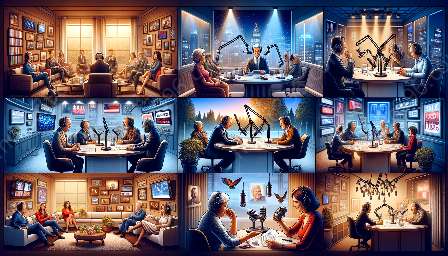Radio broadcasting has undergone significant transformation from its early beginnings to the modern era. The commercialization of radio has played a pivotal role in shaping the industry and influencing the way we consume media. This topic cluster delves into the impact of commercialization on radio broadcasting, covering its historical context, technological advancements, and the socio-economic implications.
Beginnings of Radio
The roots of radio broadcasting can be traced back to the late 19th century with the groundbreaking experiments conducted by inventors and scientists such as Guglielmo Marconi, Nikola Tesla, and Alexander Popov. These early developments laid the foundation for wireless communication and transmission of audio signals, setting the stage for the eventual commercialization of radio.
Impact of Commercialization
The commercialization of radio broadcasting brought about significant changes in the industry. It led to the establishment of radio networks, the introduction of advertising, and the rise of commercially-driven programming. This shift transformed radio from a niche technology into a mass medium with widespread reach and influence.
Technological Advancements
Technological innovations have been instrumental in the commercialization of radio broadcasting. The development of vacuum tubes, transistors, and frequency modulation (FM) enabled improved signal quality and extended the range of radio transmissions. These advancements revolutionized the way radio content was produced, distributed, and consumed, fostering a dynamic and competitive market.
Socio-Economic Implications
The commercialization of radio broadcasting has had far-reaching socio-economic implications. It has shaped consumer behaviors, advertising practices, and media regulation. Furthermore, the influence of commercial interests on radio content has sparked debates about the balance between profitability and public service, highlighting the complex interplay between economics, culture, and the public interest.
The Modern Era
In the modern era, radio broadcasting continues to evolve in response to digital technologies and changing consumer preferences. The advent of online streaming, podcasting, and satellite radio has expanded the landscape of radio consumption, presenting new opportunities and challenges for commercial entities. Amidst these changes, the legacy of commercialization remains integral to the ongoing development of radio broadcasting.









































